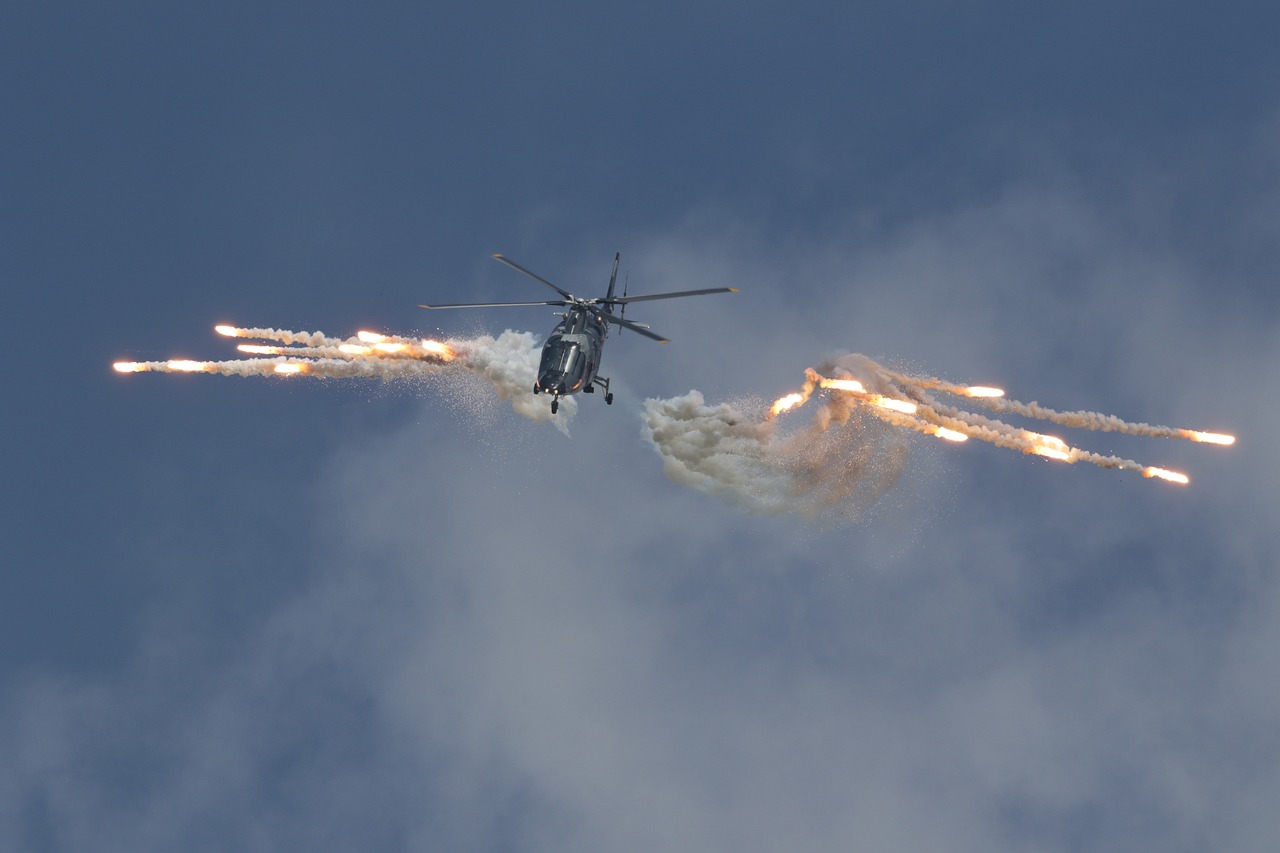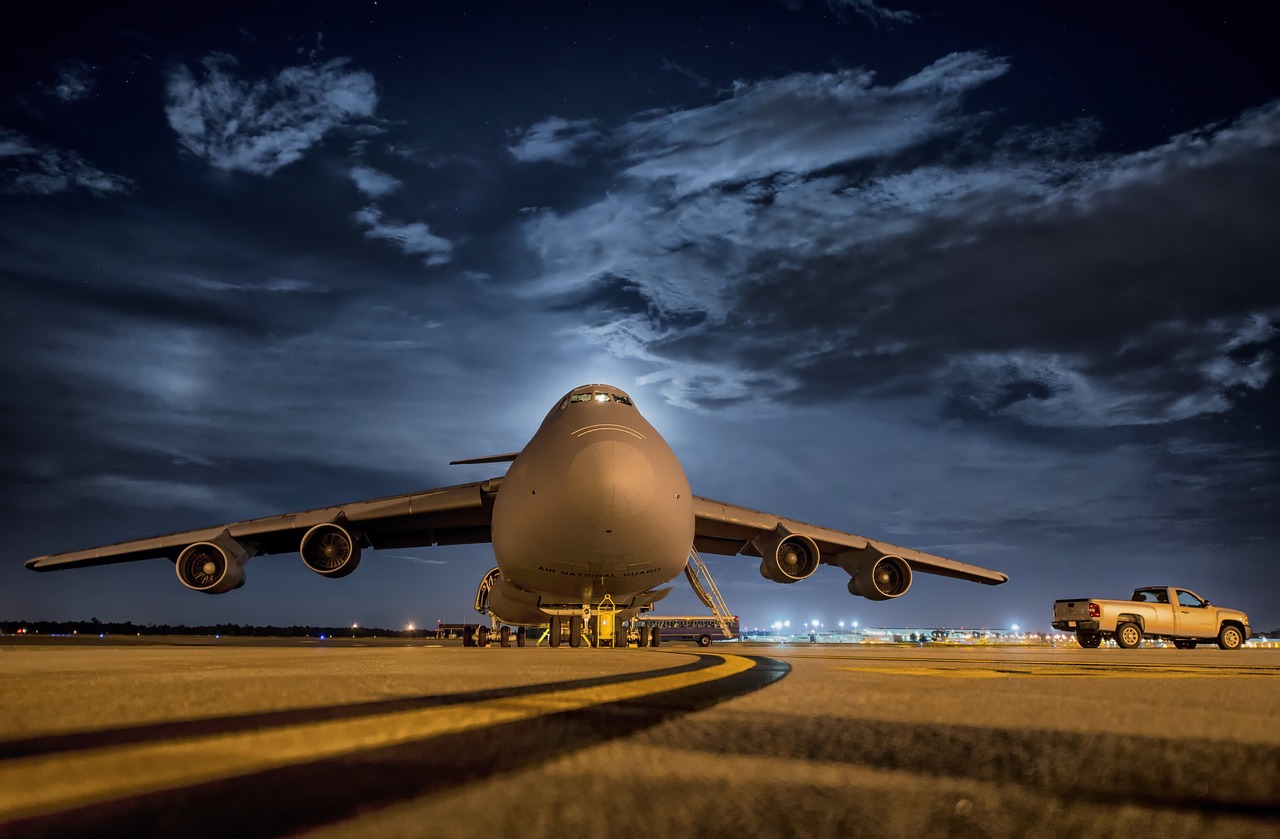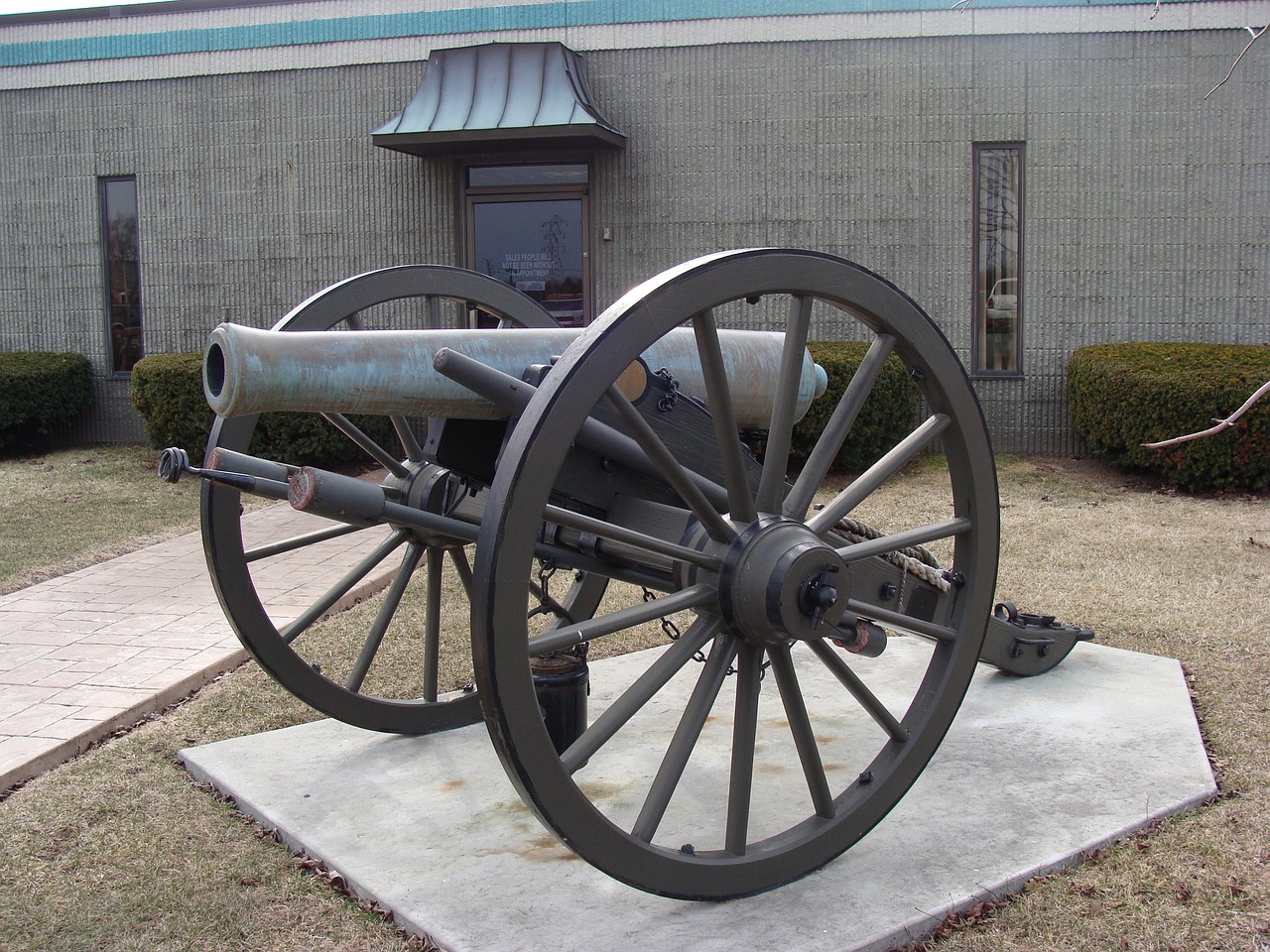How AI is Influencing Military Strategy Development
In the ever-evolving landscape of warfare, artificial intelligence (AI) has emerged as a game-changer, reshaping military strategy development in profound ways. Imagine a battlefield where decisions are made not just on instinct or experience, but through the power of data-driven insights. This shift is not merely a trend; it's a revolution that is redefining how military forces operate. As we delve deeper into this topic, we'll explore the transformative impact of AI on military strategies, examining its applications, benefits, challenges, and the future implications it holds for modern warfare.
The integration of AI into military operations allows for a level of situational awareness that was previously unimaginable. By analyzing vast amounts of data from various sources, AI can provide commanders with real-time insights that enhance their decision-making capabilities. This means that in the heat of battle, when every second counts, military leaders can rely on AI to process information faster than any human could, leading to quicker and more effective responses to dynamic battlefield conditions. It's like having a supercharged brain at your disposal, one that can sift through mountains of data to find the critical pieces of information needed for success.
One of the most exciting aspects of AI in military strategy is its diverse range of applications. From autonomous drones that can carry out surveillance missions without risking human lives to predictive analytics that help strategists anticipate enemy movements, AI is revolutionizing various facets of warfare. These advancements not only make military forces more efficient but also allow them to adapt swiftly to changing situations. It's akin to having a chess master who can foresee several moves ahead, positioning themselves advantageously well before the opponent even realizes what's happening.
However, with great power comes great responsibility. The rise of autonomous systems and robotics in military operations raises significant ethical concerns. While these technologies can reduce risks to human soldiers, they also introduce complexities regarding accountability and decision-making in combat scenarios. For instance, if an autonomous drone makes a mistake, who is held responsible? This dilemma requires careful consideration as militaries around the world navigate the uncharted waters of AI-enhanced warfare.
Moreover, the successful implementation of AI in military operations hinges on the collaboration between autonomous systems and human operatives. It's vital that technology complements human judgment rather than replacing it. Picture a skilled pilot flying a sophisticated drone; the AI assists in navigation and data analysis, but the pilot remains in control, making crucial decisions based on their expertise and intuition. This synergy between human and machine is essential for maximizing the benefits of AI while mitigating potential risks.
As we look to the future, the role of AI in military strategy will only continue to grow. The ability to leverage predictive analytics means that military strategists can forecast potential threats and outcomes with greater accuracy. This proactive approach not only enhances the success rates of missions but also allows for a more strategic allocation of resources. Imagine being able to predict an enemy's next move before they even make it—this is the power that AI brings to the table.
However, the integration of AI into military strategy also raises significant ethical dilemmas. The morality of autonomous weapons and the implications of machine decision-making in life-and-death situations cannot be overlooked. As we embrace these advancements, it is crucial to engage in discussions about the ethical frameworks that should govern their use. The question remains: how do we ensure that AI technologies are used responsibly and in accordance with humanitarian laws?
Finally, as AI technology continues to evolve, the need for international regulations governing its use in warfare becomes critical. Without proper oversight, the potential for misuse could lead to devastating consequences. Establishing a set of guidelines that all nations agree upon is essential to prevent an arms race in AI weaponry and to ensure that military operations remain compliant with established humanitarian principles.
- What are the main benefits of AI in military strategy? AI enhances decision-making, improves situational awareness, and allows for quicker responses on the battlefield.
- How does AI impact the ethical considerations in warfare? AI raises questions about accountability, the morality of autonomous weapons, and the implications of machine decision-making.
- What role do human operatives play in AI-driven military operations? Human operatives are essential for making critical decisions, ensuring that AI technologies complement rather than replace human judgment.
- Why is international regulation important for AI in warfare? To prevent misuse of AI technologies and ensure compliance with humanitarian laws, establishing international guidelines is crucial.

The Role of AI in Military Decision-Making
Artificial Intelligence (AI) is not just a buzzword; it's a game-changer in the realm of military strategy. Imagine a battlefield where decisions are made not just on instinct but backed by data-driven insights. That's the reality AI is creating. By analyzing vast amounts of data in real-time, AI enhances military decision-making processes in ways that were previously unimaginable. This technology improves situational awareness, allowing commanders to see the battlefield more clearly and respond to changes more swiftly. In a world where every second counts, the ability to make informed decisions can mean the difference between victory and defeat.
One of the most significant advantages of AI in military decision-making is its ability to process and analyze data at lightning speed. Traditional methods of information gathering can be slow and cumbersome, often leaving military leaders with outdated information when they need it most. AI, on the other hand, can sift through mountains of data—from satellite imagery to social media feeds—providing a comprehensive view of the operational environment. This capability not only enhances situational awareness but also allows for predictive analysis, enabling military strategists to anticipate enemy movements and plan accordingly.
Moreover, AI can facilitate faster responses to dynamic battlefield conditions. For instance, during a conflict, the landscape can change rapidly due to various factors such as troop movements, weather changes, and civilian activities. AI systems can analyze these changes in real-time, offering actionable insights that lead to quicker and more effective responses. This agility is crucial in modern warfare, where the tempo of operations is faster than ever before.
However, it's essential to recognize that while AI significantly enhances decision-making, it is not a replacement for human judgment. The integration of AI into military operations requires a balanced approach, where technology complements human intuition and experience. For instance, AI can provide recommendations based on data, but the final decision should rest with a human commander who can consider ethical implications and the broader context of the situation. This collaboration ensures that technology enhances strategic outcomes without undermining the moral responsibilities that come with military action.
In summary, the role of AI in military decision-making is transformative. It empowers military leaders with the tools they need to make informed choices in complex and rapidly changing environments. As we continue to explore the potential of AI in warfare, it is crucial to maintain a focus on ethical considerations and the importance of human oversight. The future of military strategy may very well depend on how effectively we can harness this powerful technology while ensuring that human judgment remains at the forefront.
- How does AI improve situational awareness in the military? AI improves situational awareness by analyzing real-time data from various sources, providing commanders with a comprehensive view of the battlefield.
- Can AI completely replace human decision-making in military operations? No, AI is designed to assist human decision-making, not replace it. Human judgment is crucial for ethical considerations and complex decision-making.
- What are the ethical implications of using AI in military strategies? The ethical implications include concerns about accountability, the morality of autonomous weapons, and the potential for unintended consequences in combat scenarios.

Applications of AI in Warfare
Artificial Intelligence (AI) is not just a buzzword; it’s a game-changer in modern warfare. The military landscape is evolving at a breakneck pace, and AI is at the forefront of this transformation. From enhancing logistics to revolutionizing combat operations, AI technologies are being integrated into various military applications, making forces more efficient and adaptable than ever before. Imagine a battlefield where decisions are made in real-time based on vast amounts of data processed in the blink of an eye. That’s the power of AI in warfare.
One of the most notable applications of AI is in autonomous systems. These systems, including unmanned aerial vehicles (UAVs) and ground robots, are increasingly deployed in military operations. They allow for risk reduction, enabling troops to stay out of harm's way while still executing critical missions. For example, UAVs can conduct reconnaissance missions over hostile territories, gathering intelligence without putting pilots at risk. This capability not only enhances operational efficiency but also saves lives.
Another exciting application is in the realm of predictive analytics. AI algorithms analyze historical data and current battlefield conditions to forecast potential threats and outcomes. This foresight allows military strategists to take proactive measures, enhancing overall mission success rates. For instance, by predicting enemy movements, commanders can reposition forces or allocate resources more effectively, ensuring that they are always one step ahead. It’s like having a crystal ball that helps military leaders make informed decisions based on data rather than gut feelings.
Moreover, AI is making waves in logistics and supply chain management. Efficient logistics are the backbone of military operations, and AI can optimize these processes by predicting supply needs, managing inventory, and ensuring timely deliveries. Imagine a scenario where AI systems can automatically reorder supplies when stocks are low or reroute shipments based on real-time conditions. This level of efficiency not only saves time but also ensures that troops receive the resources they need when they need them.
However, as we embrace these technological advancements, it’s essential to recognize the challenges that come with them. The integration of AI into military strategies isn’t without its complications. For instance, while autonomous systems offer significant advantages, they also raise ethical concerns and accountability issues. The potential for unintended consequences in combat scenarios must be carefully addressed. What happens if an autonomous drone misinterprets a target? Who is responsible for its actions? These questions linger in the air as military leaders navigate the complexities of AI in warfare.
In conclusion, the applications of AI in warfare are vast and varied, ranging from autonomous systems to predictive analytics and logistics management. As we continue to explore these technologies, it’s crucial to strike a balance between leveraging their potential and addressing the ethical dilemmas they present. The future of warfare is here, and it’s powered by artificial intelligence.
- What are autonomous systems in military operations? Autonomous systems refer to unmanned vehicles, such as drones and ground robots, that can operate without direct human control, performing tasks like reconnaissance and logistics.
- How does predictive analytics enhance military strategy? Predictive analytics uses AI to analyze data and forecast potential threats, enabling military strategists to take proactive measures and improve mission success rates.
- What are the ethical concerns surrounding AI in warfare? Ethical concerns include accountability for decisions made by autonomous systems, the morality of using autonomous weapons, and the potential for unintended consequences in combat scenarios.
- How can AI improve military logistics? AI can optimize logistics by predicting supply needs, managing inventory, and ensuring timely deliveries, thereby enhancing operational efficiency.

Autonomous Systems and Robotics
In the ever-evolving landscape of modern warfare, autonomous systems and robotics are emerging as game-changers. These technologies are not just futuristic concepts; they are actively reshaping how military operations are conducted. Imagine a battlefield where drones fly overhead, gathering intelligence and executing missions without direct human intervention. This is not science fiction; it’s happening right now. The integration of autonomous systems into military strategy offers a plethora of advantages, including enhanced efficiency, reduced risk to human life, and the ability to operate in environments that are too dangerous for human soldiers.
One of the most significant applications of autonomous systems in the military is the deployment of unmanned aerial vehicles (UAVs). These drones can perform reconnaissance missions, conduct surveillance, and even engage in combat operations. By utilizing advanced AI algorithms, these UAVs can analyze vast amounts of data in real-time, allowing military strategists to make informed decisions quickly. For instance, a UAV can monitor enemy movements and relay crucial information back to command centers, enabling a strategic advantage. Moreover, ground robots are also being developed to carry out logistics and support tasks, further enhancing operational capabilities.
However, the rise of autonomous warfare is not without its challenges. While these systems can reduce the risk to human soldiers, they also introduce a host of ethical dilemmas. Questions arise regarding the accountability of decisions made by machines in combat situations. What happens if an autonomous drone mistakenly targets civilians? Who is held responsible for such actions? These are critical issues that military leaders and policymakers must grapple with as they integrate these technologies into their strategies.
Moreover, the successful implementation of autonomous systems relies heavily on effective collaboration between technology and human operatives. It’s essential that these machines complement human judgment rather than replace it. A well-designed system should enhance the capabilities of human soldiers, allowing them to focus on complex decision-making while the machines handle repetitive or dangerous tasks. This synergy can lead to more effective and adaptable military operations.
To illustrate the impact of autonomous systems in military operations, consider the following table that compares traditional military approaches with those utilizing autonomous technology:
| Aspect | Traditional Military Approach | Autonomous Systems Integration |
|---|---|---|
| Risk to Personnel | High | Low |
| Response Time | Moderate | Rapid |
| Data Processing | Manual | Automated |
| Operational Scope | Limited | Expanded |
As we move forward, the role of autonomous systems and robotics in military strategy will only continue to grow. The potential for these technologies to revolutionize warfare is immense, but it’s crucial to approach their integration thoughtfully. Balancing the advantages of autonomy with the ethical implications will be key to ensuring that these advancements serve to protect rather than endanger lives.
- What are autonomous systems in the military? Autonomous systems refer to technologies, such as drones and robots, that can operate independently in military operations, performing tasks without direct human control.
- How do autonomous systems enhance military operations? They enhance operations by improving efficiency, reducing risks to personnel, and providing real-time data analysis for informed decision-making.
- What are the ethical concerns surrounding autonomous warfare? Ethical concerns include accountability for decisions made by machines, the potential for civilian casualties, and the moral implications of delegating life-and-death decisions to AI.
- Can autonomous systems replace human soldiers? While autonomous systems can assist and enhance military operations, they are not intended to fully replace human soldiers. The goal is to create a synergy between technology and human judgment.

Challenges of Autonomous Warfare
The rise of autonomous warfare is not without its significant challenges. While these advanced technologies promise to revolutionize military operations, they also bring forth a host of ethical, operational, and strategic dilemmas that must be addressed. One of the primary concerns is the ethical implications associated with the use of autonomous weapons. For instance, can a machine truly make moral decisions in the heat of battle? When lives are on the line, the question of whether an algorithm can replace human judgment becomes increasingly critical.
Moreover, accountability in autonomous warfare poses a complex challenge. If an autonomous drone mistakenly targets civilians, who is held responsible? The manufacturer, the military operators, or the AI itself? This ambiguity can lead to a lack of accountability, which is particularly troubling in scenarios where lives are lost due to malfunctions or errors in judgment. The need for clear guidelines and frameworks is paramount to ensure that accountability is established in these situations.
In addition to ethical concerns, there are also operational challenges. Autonomous systems must operate in environments that are often unpredictable and chaotic. This can lead to unintended consequences, such as friendly fire incidents or misinterpretation of enemy actions. As these systems become more integrated into military operations, the risk of such incidents increases, necessitating rigorous testing and validation processes to ensure their reliability.
Furthermore, the potential for hacking and cyber threats cannot be overlooked. Autonomous systems, like any other connected technology, are vulnerable to cyber-attacks that could compromise their functionality. This raises the stakes significantly; if an enemy were to hijack an autonomous weapon, the implications could be catastrophic. Protecting these systems from cyber threats is an ongoing challenge that military strategists must prioritize.
Despite these challenges, the integration of autonomous warfare technologies is inevitable. As militaries around the world continue to invest in these systems, it becomes increasingly important to establish robust frameworks that address the ethical and operational concerns. This includes developing international regulations that govern the use of autonomous weapons, ensuring compliance with humanitarian laws, and fostering collaboration between human operatives and AI systems. Only through careful consideration and proactive measures can we harness the potential of autonomous warfare while mitigating its risks.
- What are the main ethical concerns regarding autonomous warfare?
The primary ethical concerns include the morality of machine decision-making in life-and-death situations, accountability for actions taken by autonomous systems, and the potential for unintended consequences. - How does accountability work in AI-driven military operations?
Accountability is complex in AI-driven operations, as it raises questions about who is responsible for the decisions made by autonomous systems, particularly in the event of mistakes or civilian casualties. - What are the risks of cyber threats to autonomous military systems?
Autonomous systems are vulnerable to hacking and cyber-attacks, which could lead to loss of control over these systems and potentially catastrophic consequences in military operations. - Why is international regulation important for AI in warfare?
International regulation is crucial to prevent misuse of autonomous weapons, ensure compliance with humanitarian laws, and promote accountability in their deployment.

Integration with Human Operatives
The integration of artificial intelligence (AI) into military operations is not just about deploying autonomous machines; it’s fundamentally about enhancing the synergy between human operatives and cutting-edge technology. Imagine a battlefield where soldiers are equipped with AI-driven tools that analyze real-time data, predict enemy movements, and suggest tactical maneuvers. This collaboration can significantly increase the effectiveness of military strategies while ensuring that human judgment remains at the forefront of decision-making.
One of the key aspects of successful integration is the training of personnel to work alongside AI systems. Soldiers must understand how to interpret AI-generated insights and use them to inform their actions. This requires a shift in traditional military training paradigms, focusing not only on physical skills but also on technological proficiency. The goal is to create a cohesive unit where humans and machines complement each other's strengths, leading to a more adaptable and agile force.
Moreover, the integration process involves continuous feedback loops. Human operatives provide critical insights based on their experiences, which can be fed back into the AI systems to improve their algorithms. This creates a dynamic relationship where both AI and humans learn and evolve together, enhancing overall operational effectiveness. For instance, if an AI system misinterprets data, human input can help refine its algorithms, making it more reliable in future scenarios.
However, this partnership is not without its challenges. There’s a fine line between reliance on AI and maintaining human oversight. Military leaders must ensure that technology does not overshadow the essential qualities of human intuition and ethical considerations. In high-stakes environments, the ability to make quick, informed decisions based on experience can be invaluable. Therefore, the emphasis should be on using AI as a support tool rather than a replacement for human judgment.
In conclusion, the integration of AI with human operatives is a transformative approach that can redefine military operations. It offers the potential for enhanced situational awareness, improved decision-making, and ultimately, greater mission success. As we move forward, fostering a culture of collaboration between humans and AI will be crucial in navigating the complexities of modern warfare.
- What is the primary benefit of integrating AI with human operatives in the military?
The primary benefit is enhanced decision-making capabilities, where AI provides data-driven insights that support human judgment, leading to more effective military strategies.
- How does training change with the incorporation of AI in military operations?
Training now emphasizes technological proficiency alongside traditional skills, ensuring personnel can effectively collaborate with AI systems.
- What are the ethical concerns regarding AI and human operatives?
Ethical concerns revolve around the potential for over-reliance on AI, the need for human oversight, and the implications of machine decision-making in critical situations.
- Can AI truly replace human judgment in military scenarios?
No, AI should be viewed as a support tool that enhances human capabilities, rather than a replacement for human intuition and experience.

Predictive Analytics in Military Strategy
In the rapidly evolving landscape of modern warfare, predictive analytics has emerged as a game-changer for military strategists. By leveraging vast amounts of data, AI-driven predictive analytics enables military leaders to forecast potential threats and outcomes with remarkable accuracy. Imagine being able to predict not just the weather on the battlefield, but also enemy movements and strategic weaknesses. This capability can be likened to having a crystal ball that provides insights into the future, allowing for proactive measures that can significantly enhance mission success rates.
One of the most compelling aspects of predictive analytics is its ability to analyze historical data alongside real-time information. This fusion of data allows military planners to identify patterns and trends that may not be immediately apparent. For instance, by examining past conflicts, AI can suggest likely outcomes based on current troop placements and logistical capabilities. This is especially crucial in dynamic environments where conditions can change rapidly. The military can adjust its strategies in real-time, ensuring that they are always one step ahead of adversaries.
Moreover, predictive analytics can play a vital role in resource allocation. By predicting where resources will be most needed, military forces can optimize logistics, ensuring that supplies and reinforcements are delivered precisely when and where they are required. Imagine a scenario where a unit is running low on ammunition in a critical engagement; predictive analytics can forecast this need based on current engagement patterns and historical data, allowing for timely resupply missions.
However, the implementation of predictive analytics is not without its challenges. The accuracy of predictions heavily relies on the quality and comprehensiveness of the data fed into the system. Inaccurate or biased data can lead to flawed predictions, which could have dire consequences in a military context. Therefore, it is imperative for military organizations to invest in robust data collection and management systems.
Additionally, there are ethical considerations to keep in mind. The reliance on AI for predictive analytics raises questions about the potential for dehumanizing warfare. As decisions become increasingly data-driven, there is a risk that the human element may be overshadowed. Military strategists must tread carefully, ensuring that while they embrace the power of AI, they do not lose sight of the moral implications of their decisions.
In conclusion, predictive analytics represents a significant advancement in military strategy development. By harnessing the power of data, military leaders can make informed decisions that enhance operational effectiveness and increase the likelihood of mission success. However, as with any powerful tool, it is essential to use it wisely, balancing technological capabilities with ethical considerations and human judgment.
- What is predictive analytics in military strategy? Predictive analytics involves using data analysis to forecast potential threats and outcomes in military operations, enhancing decision-making and operational effectiveness.
- How does predictive analytics improve resource allocation? By predicting where resources will be needed most, military forces can optimize logistics and ensure timely delivery of supplies and reinforcements.
- What are the challenges of using predictive analytics in warfare? Challenges include the accuracy of data, potential biases, and ethical considerations regarding the dehumanization of warfare.
- Can predictive analytics replace human decision-making in military operations? While predictive analytics can provide valuable insights, it should complement human judgment rather than replace it, ensuring ethical and moral considerations are upheld.

Ethical Considerations of AI in Warfare
The integration of artificial intelligence into military strategy is not just a technological advancement; it brings forth a myriad of ethical dilemmas that society must grapple with. As we stand on the precipice of a new era in warfare, we must ask ourselves: what does it mean to relinquish human control over life-and-death decisions? The morality of autonomous weapons is a pressing concern, as these systems can operate independently, making choices that were once the sole responsibility of human beings. Imagine a scenario where a drone decides to engage a target without human intervention—who is accountable if that decision results in civilian casualties?
Moreover, the implications of machine decision-making extend beyond accountability. The potential for unintended consequences in combat scenarios raises alarms about the reliability of AI systems. Consider the possibility of an AI misinterpreting data or malfunctioning in a high-stakes situation. The ramifications could be catastrophic, leading to unnecessary loss of life and escalating conflicts. Thus, the question arises: can we truly trust machines to make the right decisions in the chaos of war?
As military organizations worldwide adopt AI technologies, they must confront these ethical challenges head-on. A vital aspect of this discussion is the need for international regulations governing the use of AI in warfare. Without a robust framework, the potential for misuse is significant. Countries may deploy AI systems without adequate oversight, leading to a new arms race fueled by technological advancements. It is imperative that the international community comes together to establish guidelines that ensure compliance with humanitarian laws and protect human rights in conflict situations.
Furthermore, the ethical landscape of AI in warfare is complicated by the varying cultural perspectives on technology and warfare. Different nations may have divergent views on the acceptability of autonomous weapons, leading to tensions and misunderstandings. To navigate this complex terrain, it is crucial to foster dialogue and cooperation among nations, addressing concerns and establishing common ground. As we look to the future, we must consider the broader implications of AI on global security and the moral responsibilities that come with it.
Ultimately, the successful integration of AI into military operations requires a careful balance between technological advancement and ethical responsibility. Military leaders must ensure that AI complements human judgment rather than replaces it. This partnership can enhance decision-making while maintaining accountability and ethical standards. As we continue to explore the possibilities of AI in warfare, let us not lose sight of our humanity and the moral imperatives that guide us.
- What are the main ethical concerns regarding AI in warfare?
Key concerns include the morality of autonomous weapon systems, accountability for decisions made by AI, and the potential for unintended consequences in conflict situations.
- How can international regulations address these ethical dilemmas?
International regulations can establish guidelines for the use of AI in warfare, ensuring compliance with humanitarian laws and preventing misuse of technology.
- What role should humans play in AI-driven military operations?
Humans should remain integral to the decision-making process, ensuring that AI systems enhance rather than replace human judgment and accountability.

Accountability in AI-Driven Operations
In the rapidly evolving landscape of military operations, the integration of artificial intelligence (AI) presents a complex web of accountability challenges. As autonomous systems become more prevalent, the question of who is responsible for decisions made by these machines during combat operations becomes increasingly critical. Are the military personnel who deploy these systems accountable, or do the developers of the AI algorithms bear the responsibility? This ambiguity can lead to dire consequences, especially in life-and-death situations.
One of the core issues surrounding accountability in AI-driven operations is the lack of transparency in decision-making processes. Unlike human operatives, who can explain their thought processes and motivations, AI systems often function as "black boxes." This means that their reasoning can be opaque, making it difficult to understand how they arrived at a particular decision. For instance, if an autonomous drone mistakenly targets civilians due to a miscalculation, pinpointing the responsible party becomes a daunting task.
To address these concerns, it is essential to establish clear frameworks for accountability. Here are some key points to consider:
- Establishing Clear Guidelines: Military organizations must create explicit guidelines that outline the responsibilities of personnel involved in AI deployment. This includes specifying who is accountable for the actions of autonomous systems.
- Transparency in AI Algorithms: Developers should strive to make AI systems more transparent. This could involve documenting decision-making processes and ensuring that the algorithms can be audited.
- Training and Education: Military personnel should receive training on the ethical implications of using AI in combat. Understanding the limitations and potential consequences of these technologies is vital for responsible decision-making.
Moreover, the legal landscape surrounding AI in warfare is still in its infancy. Current international laws and regulations may not adequately address the unique challenges posed by autonomous systems. As a result, there's a pressing need for a comprehensive legal framework that governs the use of AI in military operations. This framework should prioritize humanitarian principles and ensure that accountability is maintained at all levels.
In conclusion, accountability in AI-driven military operations is a multifaceted issue that requires careful consideration and proactive measures. As we continue to embrace technological advancements, we must also ensure that ethical standards and legal frameworks evolve in tandem. Only then can we harness the potential of AI while safeguarding human rights and maintaining accountability in the face of unprecedented challenges.
- What is the main challenge of accountability in AI-driven military operations? The main challenge lies in determining who is responsible for decisions made by autonomous systems, especially when those decisions lead to unintended consequences.
- How can military organizations improve accountability? By establishing clear guidelines, increasing transparency in AI algorithms, and providing training on ethical implications, military organizations can enhance accountability.
- Is there a legal framework for AI in warfare? Currently, the legal landscape is evolving, and there is a need for comprehensive regulations that address the use of AI in military operations.

International Regulations and AI Warfare
The rapid evolution of artificial intelligence (AI) in military contexts has sparked a profound discourse on the necessity for international regulations governing its use in warfare. As nations increasingly turn to AI technologies to enhance their military capabilities, the potential for misuse and unintended consequences becomes a pressing concern. Without a robust framework of regulations, the deployment of AI in combat scenarios could lead to catastrophic outcomes, not just for combatants but also for civilians caught in the crossfire.
One of the primary challenges in establishing these regulations is the diverse nature of AI applications in military operations. From autonomous drones capable of conducting surveillance to AI-driven decision-making systems that analyze battlefield data, the range of technologies is vast and constantly evolving. This diversity complicates the creation of a one-size-fits-all regulatory approach. Countries may have different interpretations of what constitutes ethical use of AI in warfare, leading to potential conflicts and escalations.
Furthermore, the lack of transparency in AI algorithms poses another significant hurdle. Many AI systems operate as "black boxes," where even their developers may not fully understand how decisions are made. This opacity raises critical questions about accountability and responsibility in military operations. In scenarios where AI systems make autonomous decisions, it becomes increasingly difficult to pinpoint who is accountable for actions taken—be it the military personnel, the developers, or the governing bodies that authorized their use.
To address these challenges, there is a growing consensus among international bodies, including the United Nations, that comprehensive regulations are essential. These regulations could encompass various aspects, such as:
- Defining the scope of AI technologies permissible in military applications.
- Establishing accountability frameworks for decisions made by autonomous systems.
- Ensuring compliance with existing humanitarian laws and ethical standards.
- Promoting transparency in AI algorithms and decision-making processes.
Moreover, engaging in international dialogue is crucial for fostering cooperation among nations. By sharing best practices and insights into AI technologies, countries can work together to develop standards that mitigate risks while maximizing the benefits of AI in warfare. This collaborative approach can also help build trust among nations, reducing the likelihood of an arms race fueled by AI advancements.
In conclusion, the integration of AI into military strategies presents both opportunities and challenges. The establishment of international regulations is not just a bureaucratic necessity; it is a moral imperative to ensure that the use of AI in warfare aligns with humanitarian principles and ethical standards. As we stand on the brink of a new era in military operations, the decisions we make today regarding AI governance will profoundly shape the future of warfare and global security.
- What are the main challenges in regulating AI in warfare? The main challenges include the diverse applications of AI technologies, lack of transparency in AI decision-making, and differing national interpretations of ethical use.
- Why is international cooperation important for AI regulations? International cooperation is essential to establish a unified framework that promotes ethical standards, accountability, and transparency in AI military applications.
- What role do existing humanitarian laws play in AI warfare? Existing humanitarian laws provide a foundation for establishing ethical guidelines and accountability measures for the use of AI in military operations.
Frequently Asked Questions
- How is AI changing military decision-making?
AI is revolutionizing military decision-making by providing data-driven insights that enhance situational awareness. This allows military leaders to respond quickly to changing battlefield conditions, leading to more effective strategic outcomes. Imagine having a super-smart assistant that analyzes vast amounts of data in seconds, helping you make the best call in a high-pressure situation!
- What are some applications of AI in warfare?
AI is being utilized in various ways, including autonomous drones, predictive analytics, and advanced logistics systems. These technologies improve efficiency and adaptability in military operations. Think of it as having a high-tech toolbox that equips soldiers with the latest gadgets to tackle challenges more effectively.
- What are the ethical concerns surrounding autonomous warfare?
One of the biggest ethical dilemmas is the morality of using autonomous weapons that can make life-and-death decisions without human intervention. There are also concerns about accountability—who is responsible if something goes wrong? It's like handing over the keys to a self-driving car and questioning who’s liable in an accident.
- How does predictive analytics enhance military strategy?
Predictive analytics allows military strategists to forecast potential threats and outcomes, enabling them to take proactive measures. This technology can be compared to having a weather forecast for the battlefield, helping commanders prepare for various scenarios before they unfold.
- What role do human operatives play in AI-driven military operations?
While AI can handle many tasks, successful military operations require effective collaboration between human operatives and autonomous systems. It’s essential that technology complements human judgment rather than replacing it, much like a pilot working alongside an advanced flight system.
- Are there international regulations governing AI in warfare?
As AI technology advances, there is a growing need for international regulations to govern its use in warfare. These regulations aim to prevent misuse and ensure compliance with humanitarian laws, much like traffic laws that keep our roads safe.
- What challenges do autonomous systems face in military applications?
Autonomous systems bring significant advantages, but they also face challenges such as ethical concerns and potential unintended consequences in combat scenarios. It's crucial to address these issues to ensure that the technology is used responsibly and effectively.



















